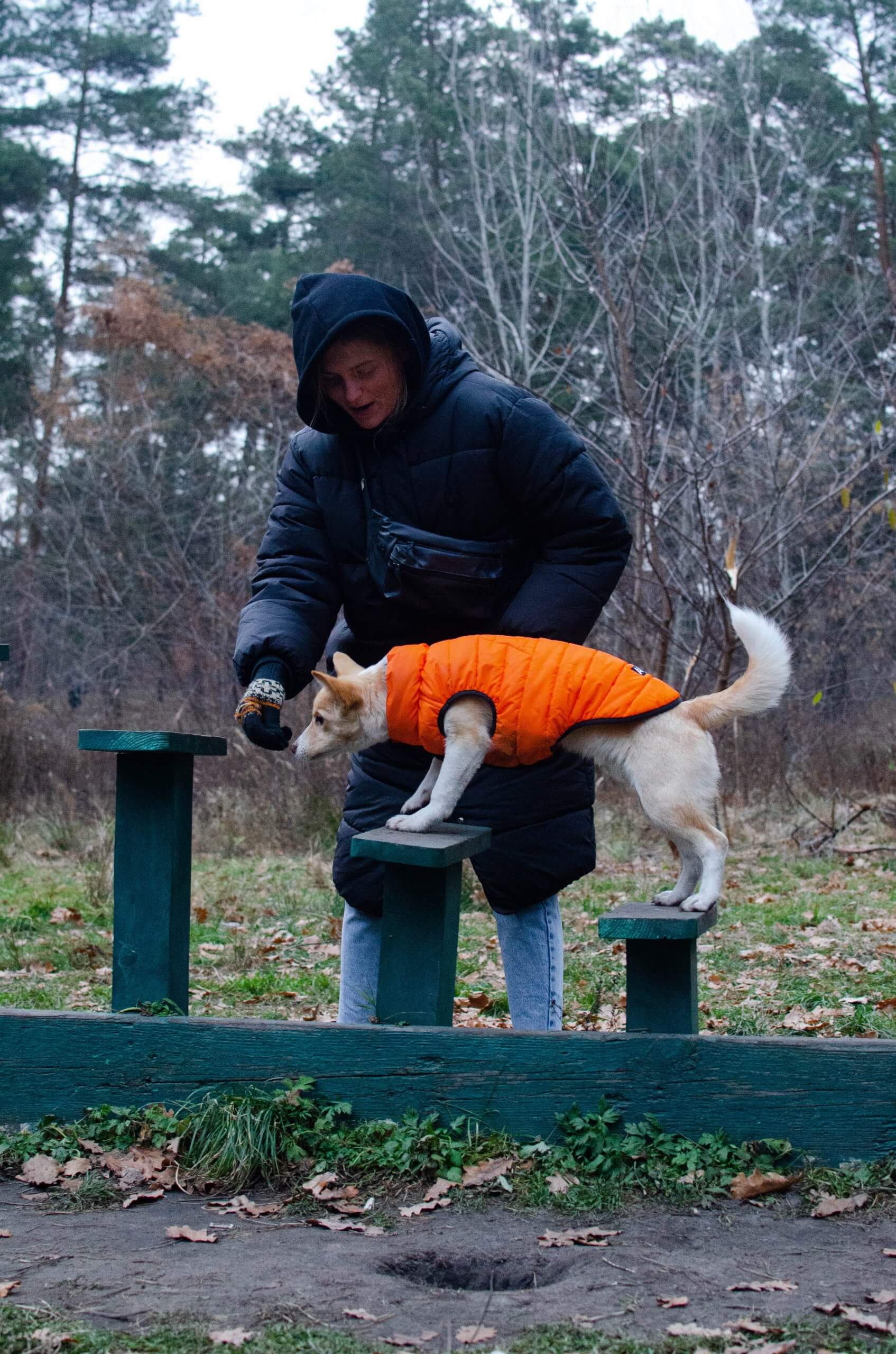Introduction:
Do know how long does it take to become a dog trainer? A profession in dog training can be a lot of fun, as it entails teaching dogs new skills, such as socializing and teaching them to cope with stressful situations like moving. For the next few years, animal care and service employees may expect a good job outlook, according to the US Bureau of Labor Statistics.
Do you want to be a dog trainer? Owners and their dogs will have different learning methods, so you’ll need a lot of patience and also flexibility to adapt your teaching style.
How Long Does It Take To Become A Professional Dog Trainer?
Getting into the field of dog training requires a significant amount of dedication and hard work. You shouldn’t expect to be able to start your company after attending a few weekend training. Acquiring an official professional education necessitates a significant investment of time, energy, and commitment on your part. Theory and practice are necessary for you to master the art of driving.
Similarly, dog training has evolved with advancements in science. it is an ever-changing business. Continuing education should be a part of your professional life. If you have a solid educational foundation, you should feel confident and prepared to start your own business.
How To Become A Dog Trainer?

Learn the skills you’ll need to get a job as a professional dog trainer and show potential employers that you have experience working with dogs and their owners.
1. Find Out More About How To Teach A Dog
Animal behavior must be understood to effectively train dogs. Reading books, attending workshops and seminars, or taking behavior and obedience lessons is a great ways to learn about dog behavior and training approaches. First and foremost, if you have a dog, you should work on training it.
2. Acquire Knowledge And Expertise
After you’ve finished your formal education, you’ll need to work your way up through the ranks. As even if you’ve successfully trained your own dog, you’ll need to have expertise in teaching other dog owners how to educate their pets. Consider becoming a volunteer at a local animal shelter or rescue, or taking an internship with a local dog trainer to learn how to properly teach dogs.
Apprenticeships typically last 6 months to a year and give you practical experience in the field. You can learn to associate more freely with clients & their pets as you gain more experience and expertise in the field.
3. Become Certified In Dog Training.
As a dog trainer, you don’t need to be certified by the federal or state government, but certification from an independent organization can help you land a job or demonstrate your expertise to potential clients and employers.
Several training organizations offer certification programs for those who wish to enhance their credentials, including the Certification Council for Professional Dog Trainers (CCPDT), the International Association of Canine Professionals (IACP), and the National Association of Dog Obedience Trainers (NADOI). The American Kennel Club’s Canine Excellent Citizen (CGC) program is a standard certification for dog trainers who want to demonstrate their knowledge of proper canine behavior and obedience.
4. Become A Member Of A Professional Group.
If you’re looking to grow your professional network and gain new skills, joining an established dog training organization like the Association of Professional Dog Trainers (APDT) is a great choice. Several organizations hold seminars as well as other events to educate dog trainers on new techniques and exchange ideas.
5. Create A Well-Written CV For A Dog Trainer
As soon as you’ve completed your education and gotten some experience working with dogs and their owners, you may begin applying for dog training jobs. If you want to stand out from the crowd while applying for jobs, you need to have a CV that shows off your experience, education, and accomplishments.
What Is The Role Of A Dog Trainer?

Owners learn from a dog trainer how to train their pets to obey their directions. Trainers can also assist owners to avoid undesired pet behaviors such as jumping over furniture, making any noise late at night, or urinating in awkward places. It is common for them to deal with dogs that are energetic, afraid, or anxious when they are away from their families. For example, some dog trainers specialize in working with a specific type of dog, while others just focus on obedience training.
Success in dog training depends on several elements, such as how quickly and readily dog owners learn and implement new training methods. Training for hunting, police enforcement, search – and – rescue as well as dog sports, herding cattle and more can be provided by dog trainers.
Some dog trainers offer group classes, while others just work with individuals and their pets. The Koehler technique, dominance training, clicker training, relationship-based training, and positive reinforcement can all be used by these specialists.
Dog Trainer Coaching: Two Months To Several Years
Even though no state now requires a formal degree for dog trainers. These choices can help you get the fundamental experience and knowledge you need to accomplish your work properly. The length of time it takes to complete each course varies, and is self-paced, allowing you to learn at your own pace and on your timetable. Several colleges and universities offer specialized programs to help students gain more chances and boost their earning potential.
1. Hands-On School (2-5 Months)
It’s possible to find a dog training school that provides both classroom and hands-on instruction. Students who attend hands-on institutions, which are typically more time-consuming and expensive than others who attend online schools, receive a much more comprehensive education. In addition, unlike in an online class, your experience at a hands-on dog training course acts as experience, unlike in an online school.
2. Schooling Through The Internet (6-12 Months)
Dog trainers who can’t attend school full-time often turn to distance learning. You have the flexibility to learn at your own pace, which is one of the main advantages of an online school. Unfortunately, you will have to get your hands dirty somewhere else if you want to become a professional dog instructor after completing one of these programs.
3. Mentoring (Timeline Varies)
If you can’t afford school, your best choice is to find a teacher in your field and work as an intern under him or her. The pace of your education will be dictated by the openness and discretion of your mentor in this scenario, rather than you. They’ll teach you at the speed at which they believe you’re ready to pick up new information and skills.
4. Self-Education (Timeline Varies)
If none of these choices work for you, you always can learn how to teach dogs on your own. Prospective trainers can learn a lot from books, seminars, and videos, among other things. It may take longer, but self-study is an excellent alternative if you don’t have the resources or time to attend a more traditional school.
Dog Trainer Certification: Several Weeks To Several Months
You may become a certified professional dog trainer from any school you choose, but if you want to boost your credentials even further, consider earning extra qualifications. By far and away the most well-known credential is that of the Certified Council for Professionals Dog Trainers (CCPDT). Many certificates are available through the CCPDT. To pass, you must have some level of demonstrated expertise and knowledge.
- Certification as a Certified Professional Dog Trainer (CPDT-KA)
- The Certified Professional Dog Trainer-Knowledge and Skills Assessed (CPDT-KSA)
- Canine-Knowledge Assessed (CBCC-KA) Certified Behavior Consultant
The CPDT-KA certification is for professional dog trainers who want to demonstrate their expertise in the field. In order to get the CPDT-KSA credential, you must also pass a practical test demonstrating your proficiency in dog training. The CBCC-KA certification is designed for expert dog trainers who would like to teach behavior modification techniques to their clients. The CCPDT maintains a directory of qualified dog trainers, and your name will show there as well.
Even while certification examinations only take a few hours to complete, studying for them can take anything from a few weeks to several months. To pass the tests, you may need to put in several years of study time, depending on the educational background.
Dog Trainer Skills And Job Duties
A good dog trainer must have the following qualities:
- Ability to effectively communicate with both canines and humans
- Being able to maintain a positive outlook in the face of challenging situations Possessing a solid command of both canine and human body languages
- When working with people and dogs, it’s important to practice patience.
Dog trainers face some challenges daily, including the ones listed below:
- For dogs and their owners, implementing a training plan
- Owners and their dogs are taught how to communicate with one another.
- Helping owners train their dogs to behave effectively in a wide range of scenarios, such as mingling with other animals, going for a walk in public, traveling, and meeting new people.
- Training owners to detect the signals of pain or illness in their dogs.
Personal Skills Needed:
You’ll need to master a few personal qualities and canine-specific ones to be a great dog trainer. These include:
- Patience in the face of both negative and favorable feedback
- Communication
- Talents with people (you’ll be working with and training people as well)
- Personal commitment, perseverance, and reliability with a hands-on approach
Conclusion:
There are many ways to become a dog trainer, and each has its timetable. You’re ready to begin dog training now that you’ve gained experience working with dogs and have completed the necessary courses. Last but not least, never give up on learning new things! So it’s crucial to stay up to date with the newest practices in dog training to become the best dog trainer.










